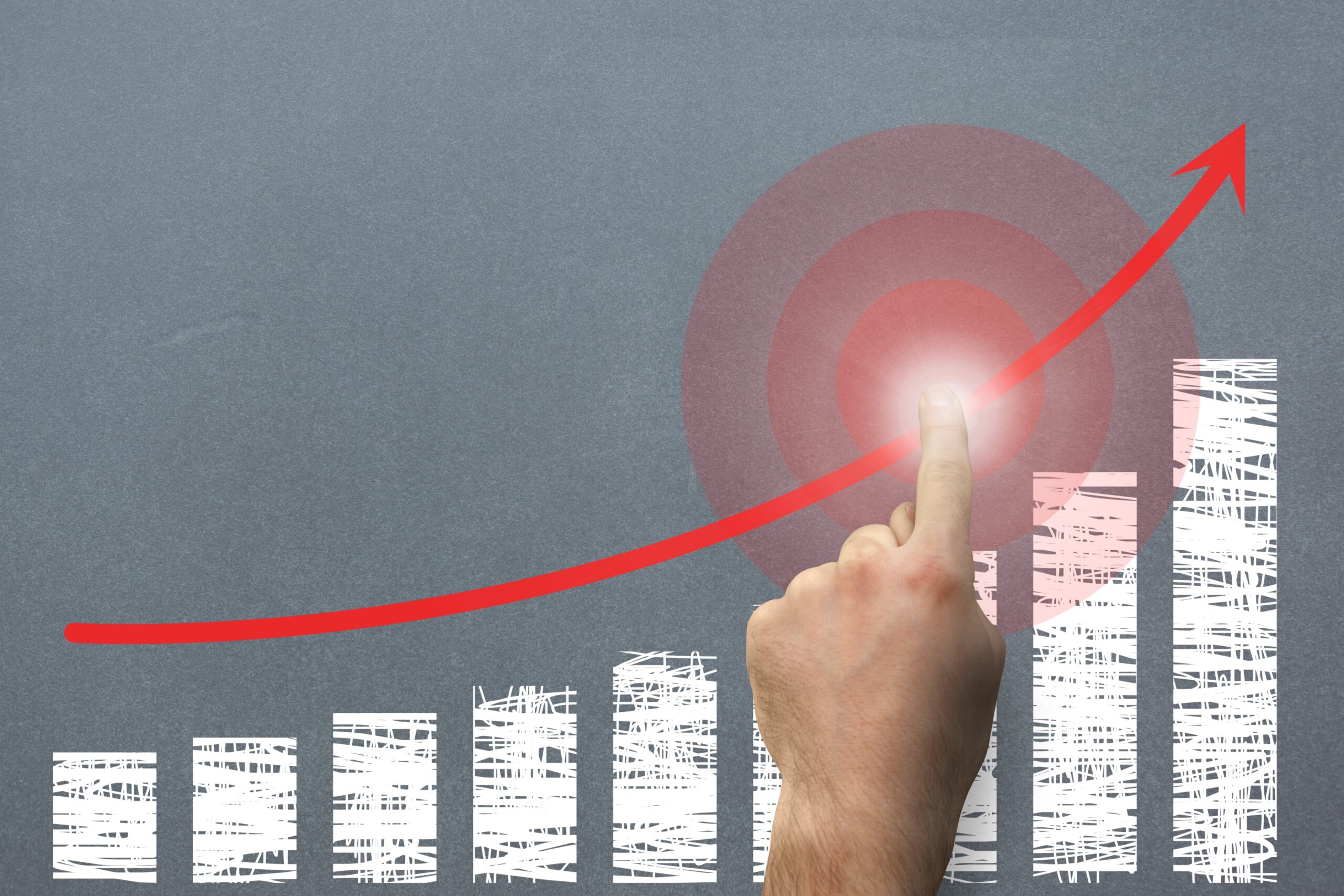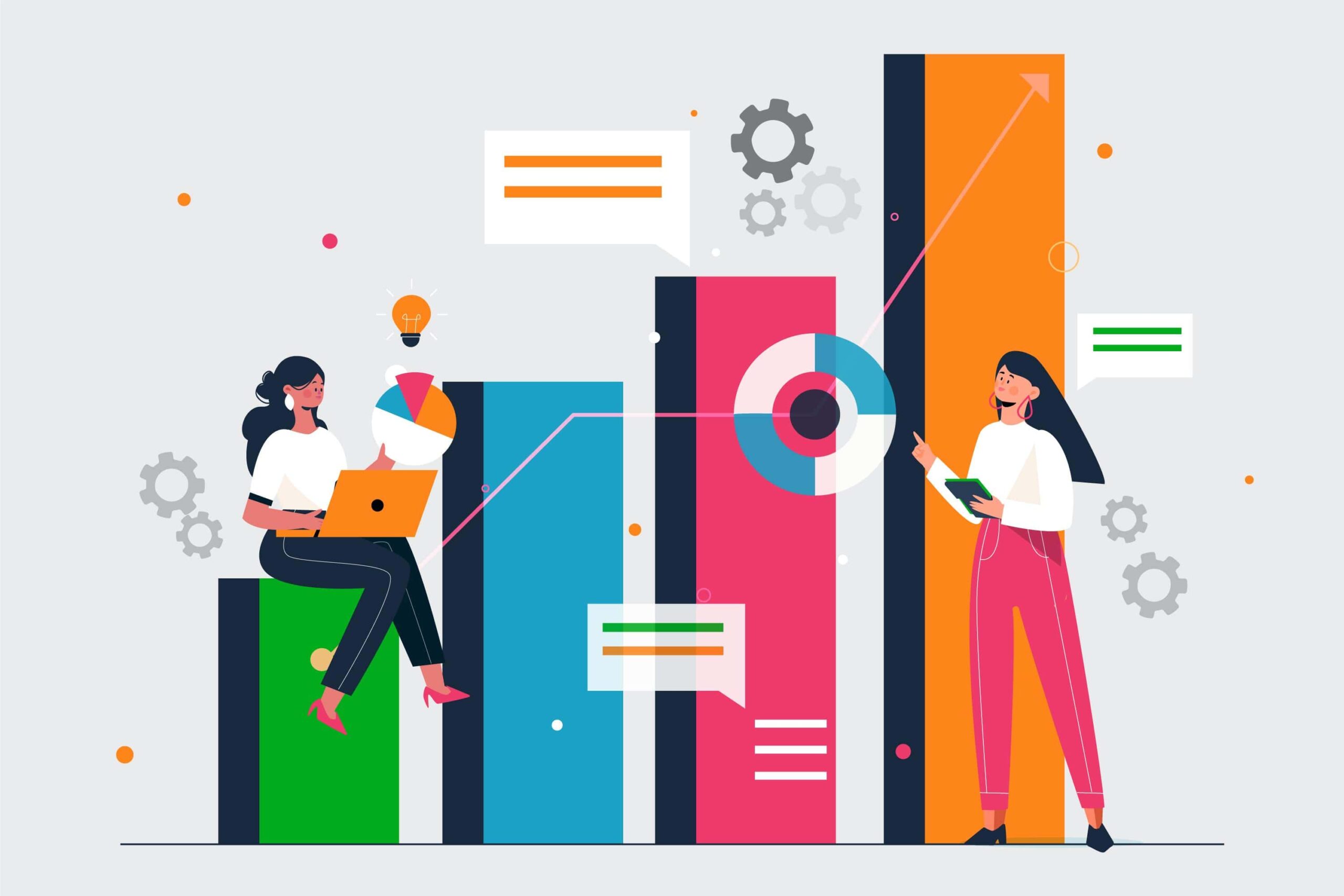Marketing has changed a lot in the digital era. You have to be smart, data-driven, and personalized. And the secret sauce behind this change is AI. AI is a powerful tool that can help you achieve your performance marketing goals. AI can help you analyze large amounts of data, automate tasks, optimize campaigns, and personalize content. AI can also help you create new and innovative ways to engage your audience, such as chatbots, voice assistants, and interactive videos.
AI is the future of performance marketing, and you don’t want to miss out on it.
In this blog, we’ll show you how AI is transforming the world of performance marketing.
The Rise of Performance Marketing

Performance marketing is a smart way to advertise where you only pay for what you get. You decide what results you want, such as clicks, leads, conversions, or anything else. Then you only pay when those results happen. Performance marketing is all about being accountable and efficient.
But performance marketing is not a walk in the park. It depends a lot on the data and how you use it. You have to be quick and smart. That’s where AI comes in handy.
AI and Data Analysis

AI is a game-changer for performance marketing, as it can crunch and analyze tons of data in a blink of an eye. Marketing campaigns produce data like there’s no tomorrow, from website visits and user actions to clicks and conversions. Trying to manually dig through this data for insights and improvements is like looking for a needle in a haystack, not to mention time-wasting and inefficient.
AI algorithms are data wizards. They can spot patterns, trends, and correlations that might be hidden from human eyes. This helps marketers to make smart choices based on data. For example, AI can track user behavior on an e-commerce website and suggest personalized product recommendations, boosting the odds of conversion.
AI-driven data analysis also enables predictive analytics. Marketers can use AI to see into the future and anticipate customer behavior based on past data, helping them use resources more wisely and plan campaigns more.
Personalization at Scale

Personalization is the key to modern marketing. Consumers today want customized experiences that suit their tastes and needs. However, personalizing marketing efforts for each individual customer by hand is a Herculean task, especially when dealing with a large customer base. AI makes this problem disappear by enabling personalization at scale.
AI algorithms are like the Sherlock Holmes of marketing.
They can deduce customer profiles from clues like preferences, purchase history, and browsing behavior. With these profiles, marketers can craft tailor-made marketing campaigns that appeal to each customer’s unique needs and wants. For instance, an e-commerce company can use AI to send customized product suggestions through email or display ads, making the customer more likely to buy.
Chatbots are like friendly salespeople who know everything about the customer. They can chat with customers in real time, answer their queries, and offer personalized recommendations based on the customer’s inquiry and previous interactions. This makes the customer happy and boosts the chances of making a sale.
Improved Ad-Targeting
Relying on demographics is one way but do you know how you can make it better? Well, of course, with AI. AI is like a smart archer who can adjust the aim and angle of each arrow. It takes ad targeting to a whole new level.
AI algorithms meticulously analyze user data, creating highly granular audience segments. These segments go beyond mere demographics, incorporating user behavior, interests, and real-time intent. As a result, advertisements can be strategically shown to users who are most likely to engage, significantly boosting conversion rates and return on investment (ROI).
In the ever-shifting landscape of digital advertising, AI puts on its strategist’s hat. It monitors ad performance like a hawk tracking prey. When a lackluster ad stumbles, AI doesn’t panic; it recalibrates. Budgets shift, like chess pieces on a grand board, favoring the champions. The campaign – a symphony of data and algorithms – harmonizes toward optimal results.
Enhanced Customer Engagement
AI assistants and chatbots powered by AI aren’t simply for responding to client questions; they can also start discussions and actively engage customers. Building brand loyalty and boosting customer lifetime value depends on this degree of consumer engagement.
A chatbot powered by artificial intelligence (AI) on an e-commerce website, for instance, can proactively ask a visitor if they need help, provide product recommendations, and walk them through the purchasing process. In addition to enhancing the consumer experience, this may boost sales.
AI can also automate email marketing for consumer engagement. AI algorithms are capable of analyzing consumer behavior and determining the best moments to deliver automated, tailored email messages. Customers will receive pertinent offers and content at the precise moment when they are most likely to interact with it.
Enhanced Ad Creatives

AI can help in the creation of ad creatives in addition to targeting. Based on data and insights, AI-powered systems may create headlines, ad content, and even visual designs. This can result in more successful ad creatives and save marketers time.
AI, for instance, may identify the most effective ad creatives and produce variations of those ads that are similar but tailored to different audience groups. The most efficient ad elements may be swiftly determined with the help of this large-scale A/B testing.
Fraud Prevention

Ad fraud is a major issue in the world of digital marketing. Advertisers frequently pay for clicks or ad impressions that come from bots rather than from actual people. AI is essential for preventing fraud.
AI systems are able to examine user behavior and spot trends that could be signs of fraud. For instance, AI can flag clicks on an advertisement as possibly fraudulent if a high number of them originate from the same IP address or display unusual behavior patterns.
Additionally, AI can improve security by putting in place controls like CAPTCHA and behavioral analysis to make sure that actual people are engaging with adverts, lessening the impact of fraudulent actions.
Optimized Budget Allocation

Budget allocation is among the performance marketing’s most difficult parts. To maximize ROI, businesses must select how much to invest in various marketing platforms and initiatives. By regularly evaluating campaign performance and changing budget allocation, AI-driven algorithms can optimize this process.
For instance, AI can instantly add more funding to a paid search campaign if it is producing a high return on investment. On the other side, if a display ad campaign isn’t doing well, AI can cut back on its budget and shift funds to more lucrative channels. The most effective use of marketing funds is ensured by this dynamic budget allocation.
Conclusion

AI has completely changed the performance marketing landscape.
It gives marketers the knowledge and resources they need to design highly tailored, data-driven, and effective marketing strategies. AI is revolutionizing every facet of performance marketing, from data analysis and ad targeting to consumer engagement and fraud detection.
We can anticipate even more cutting-edge and successful marketing approaches to emerge as AI technology develops, altering the way firms engage their consumers and generate results. Businesses that integrate AI into their marketing strategy will be well-positioned to succeed in the digital era and remain competitive.
It’s clear that AI is not just a trend; it’s a fundamental component of the future of marketing.
